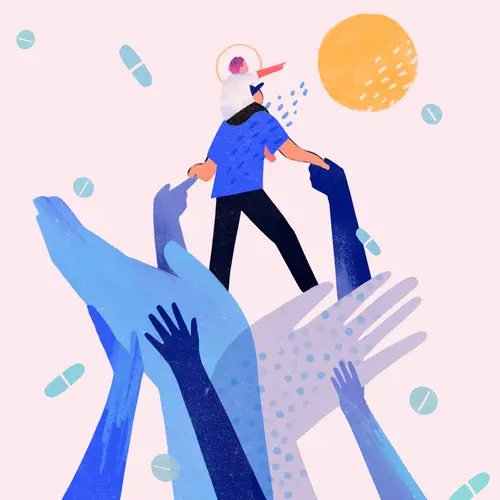There’s no doubt that your life will change when you get a diagnosis of melanoma. Depending on how serious your disease is, things might be very different for you or only slightly switched up. Either way, there are ways to handle these changes and even thrive while you move on with your life.
Shield Your Skin
If you’ve had one melanoma, it means you're at risk for more. But you can protect your skin with some basic sun-safety tips.
- Don't spend much time outside between 10 a.m. and 4 p.m., when the sun and its piercing ultraviolet (UV) rays are strongest. An easy way to tell when the sun is too strong for comfort: when your shadow is shorter than you are.
- Every time you go outside, wear a broad-spectrum sunscreen, which protects against UVA and UVB rays. It should have an SPF of at least 30. Reapply at least every 2 hours, and more often if you're swimming, sweating, or spending time near water or snow.
- Cover your skin with pants, long sleeves, and a wide-brimmed hat.
- Wear UV-protective sunglasses outside to protect your eyes. You may have a higher risk for eye melanoma, so see your eye doctor regularly, too.
- Be extra careful if you’re taking "photosensitive" drugs, which make you more sensitive to the sun. This includes some chemotherapy drugs.
- Check every part of your skin at least once a month, looking for any new or changing marks. Also make sure you have regular checkups with your doctor.
Keep Control of Conversations
After a melanoma diagnosis, many people feel better if they confide in others about what’s going on. But sometimes that can backfire. You may find yourself fielding uncomfortable questions or inappropriate comments. Try these tips to keep awkward moments to a minimum -- or at least control your reaction to them:
- Remember, it's usually not about you. People bring their own fears and memories to the table.
- Decide carefully who you’re going to tell about your disease as well as when and how much to share.
- If you're exhausted from explaining your diagnosis over and over again, direct people to a web site or choose a friend or family member to answer questions.
- Have responses ready in case you get odd questions or comments, or be ready to change the subject.
Sex After Melanoma
If you find and treat melanoma in the early stages, your sex life probably won't change much. If you need chemo and other treatments, though, you may need to adjust. Try these tips:
- If a position is uncomfortable, try ones that are easier on you, like both you and your partner lying on your sides.
- Chemo drugs can stay in semen or vaginal fluids for up to 3 days after you get them. Use a condom during that time (for oral sex, too) so you don’t pass the chemicals to your partner.
- Some treatments can affect your desire for sex, keep you from climaxing, or irritate your genitals. Talk to your doctor or nurse about ways to handle these problems.
- If your body doesn’t have enough white blood cells, which can happen with chemo, don't have vaginal or anal sex until your levels go back up. You might get an infection, and you would need those cells to fight it.
Get Back to Your Workouts
Exercise is one of the best things anyone can do for their health, and people with melanoma are no exception. You just need to follow a few commonsense guidelines:
Don't do any really taxing exercise (kickboxing, for example) right after surgery, even if the cut seems to be a small one. Overdo it and you could tear your stitches.
Keep in mind that melanoma treatment may have affected your stamina. Even if you were super active before the diagnosis, start out slowly when you’re getting back to your workouts after treatment.
If your treatment makes you tired, plan exercise at times of the day when you have the most energy.
Outdoor workouts should be fine as long as you protect yourself from the sun.
Always talk to your health care team about the types of activity that are best during your recovery.
Proclaim Cancer Holidays
Cancer is a big deal, but it doesn't have to take over every second of every day of your life. Find places and times to put your disease on the back burner and keep things normal with schedules, family time, and hobbies.
Celebrate all the successes in your cancer journey, big or small. You can schedule a special dinner when you finish chemo or a bigger gathering when you go one year cancer-free.
It's possible to have cancer and keep living an active life. You might actually feel you grow as a result.

